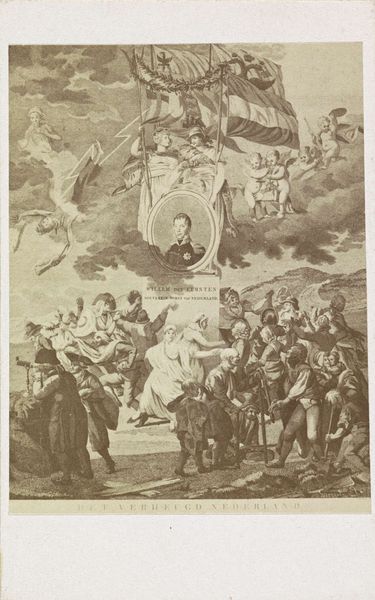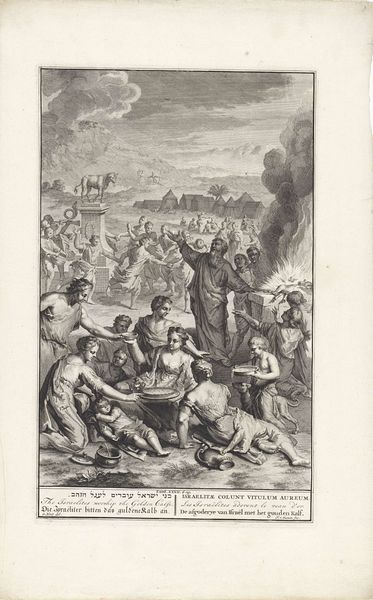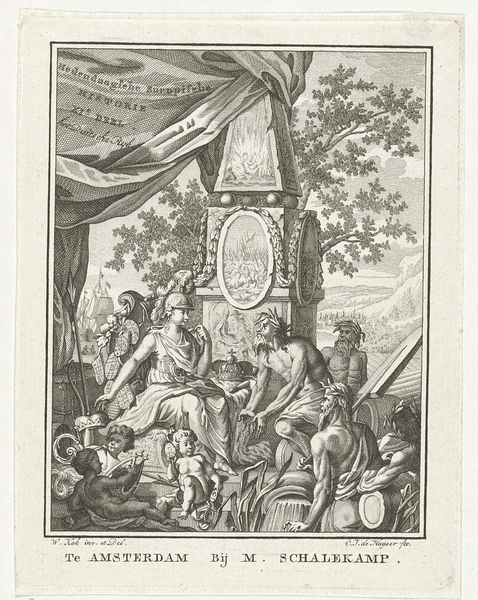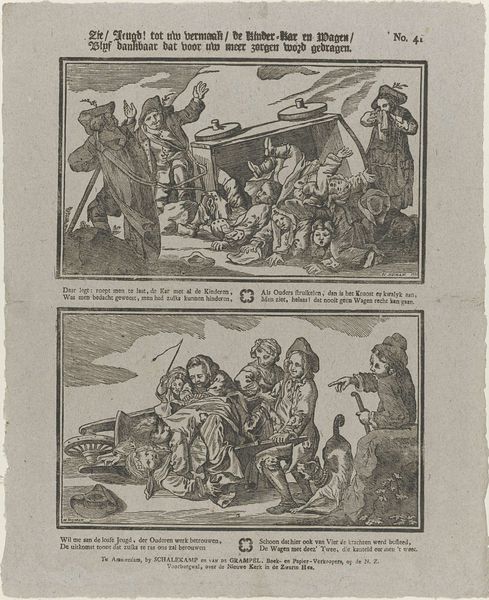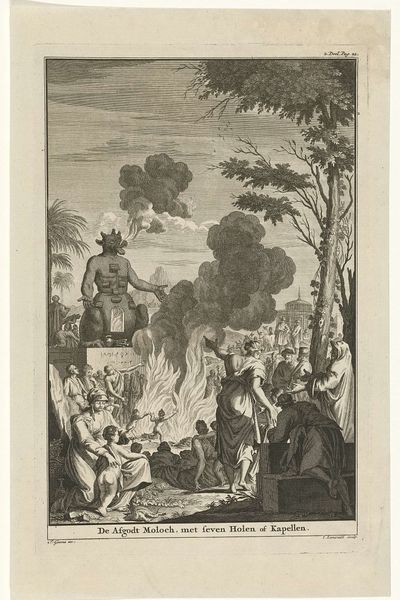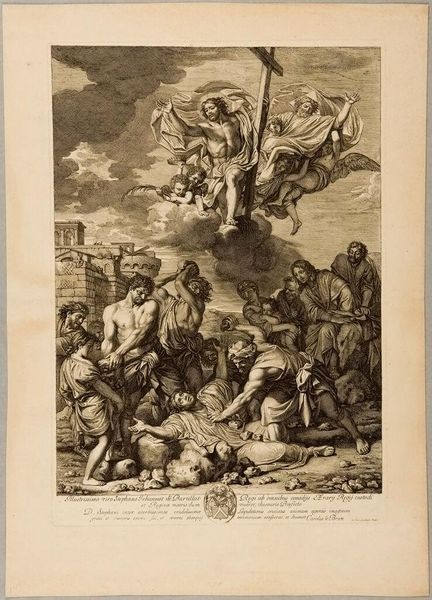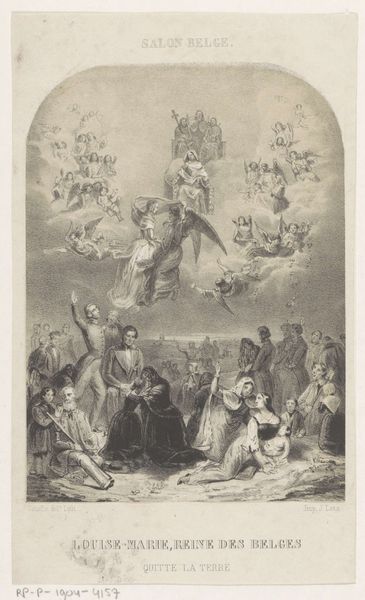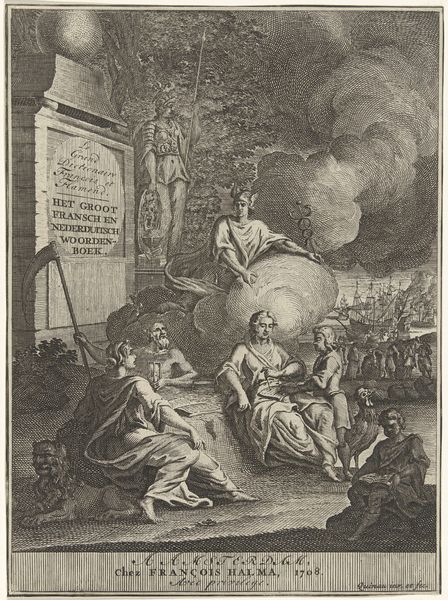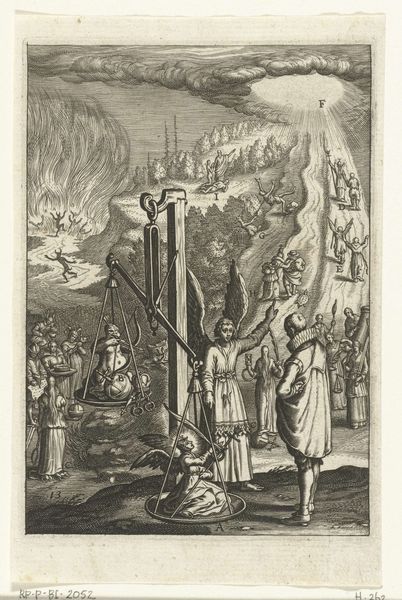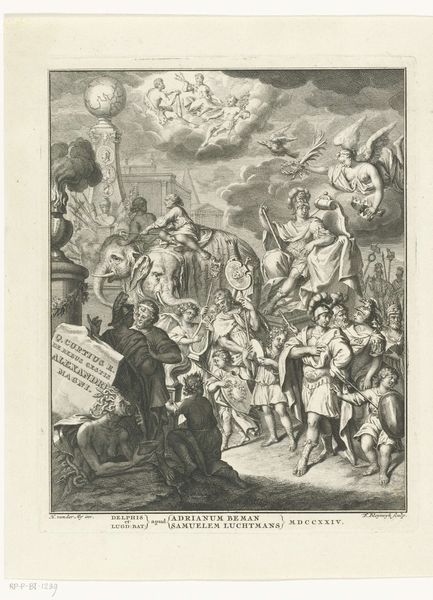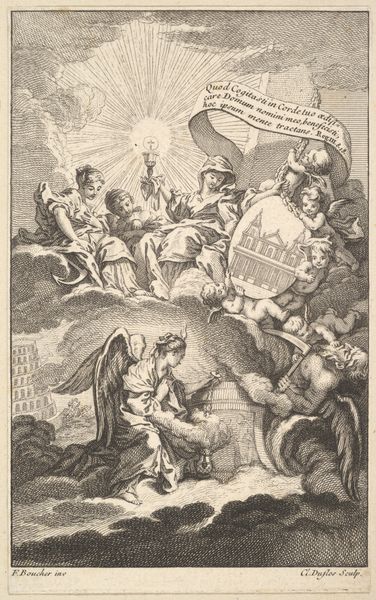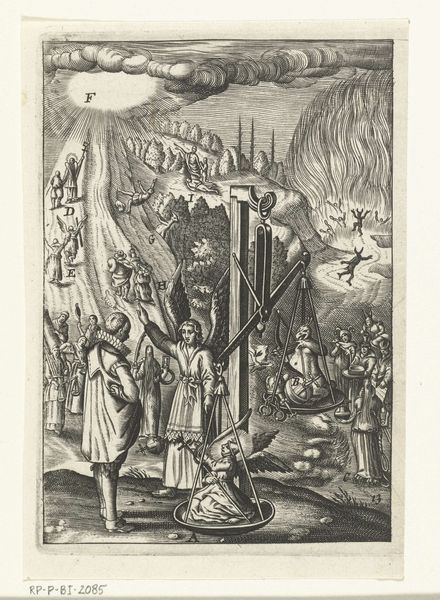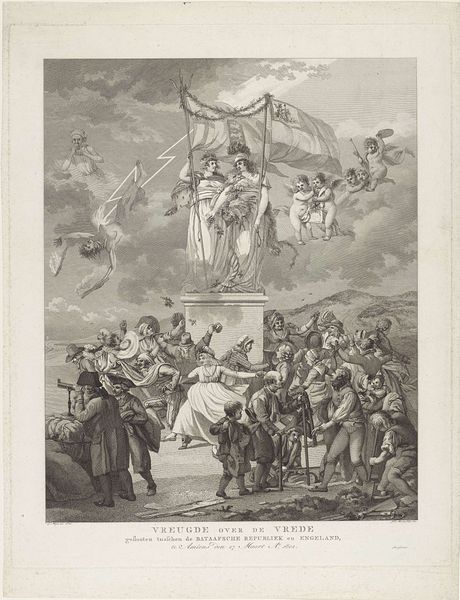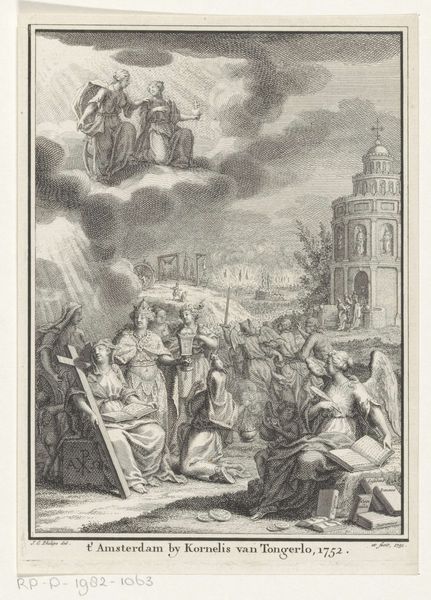
print, engraving
#
allegory
#
baroque
# print
#
history-painting
#
engraving
Dimensions: width 307 mm, height 205 mm
Copyright: Rijks Museum: Open Domain
Curator: This engraving, “Allegory on the Persecution of Anabaptists,” from 1685 presents a fascinating study in material culture and social control. What strikes you about it? Editor: It's intense! I mean, it's right there in the title, but seeing the burning books and the overall imagery is quite striking. The print shows allegorical figures alongside what looks like a historical depiction, with religious leaders in the back and figures of virtue in the front. What’s your read? Curator: I am struck by the means of its creation. Engravings like these were reproduced and disseminated widely, functioning almost as propaganda. Consider the paper it’s printed on, the ink, the labour involved in creating the plate. How did these materials contribute to shaping public opinion and reinforcing social structures around religious persecution at the time? Editor: So it’s not just about what's depicted, but how the image *itself* was used as a tool? The image makes me think that someone may be actively working to convince others, not just documenting for history’s sake. Curator: Precisely. And look at the details. The broken printing press in the foreground signifies the silencing of dissenting voices. The cherubs holding the banner… what’s their role in justifying such cruelty? Think about the social currency of such images. Editor: I see what you mean. Considering the labor, the printing process, and the intended audience shifts my focus. The artwork doesn't feel quite as removed. Curator: Right. The piece prompts us to examine how even seemingly "high art" forms like allegory intertwine with the everyday material realities of labor, production, and ideological consumption. The selection of allegory as a primary device gives another point to contemplate. Editor: I never thought of it that way before, I always thought more about its symbolic weight and the overall aesthetic. Thanks. Curator: A fruitful discussion that opens interesting pathways to discovery for us all.
Comments
No comments
Be the first to comment and join the conversation on the ultimate creative platform.
